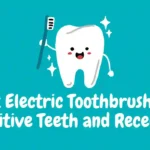As an Amazon Associate. I earn from qualifying purchases
Numbing can often be one of the biggest concerns for dental patients. The thought of feeling pain or discomfort during a procedure can cause anxiety and fear, making it difficult to even schedule an appointment.
That’s why at our practice, we understand the importance of providing effective numbing to ensure a comfortable and stress-free experience.
But have you ever wondered how long the numbing effects last? It’s an important question to consider, especially if you have a busy schedule and need to plan accordingly. Here are some key things to know about numbing duration for dental patients.

How long does numbing typically last?
The duration of numbing can vary depending on the type of anesthesia used and individual factors such as metabolism and tolerance. Generally, local anesthesia used in dental procedures can last anywhere from two to eight hours.
This means that you may experience numbness for a few hours after your appointment, but it will eventually wear off.
Factors that affect numbing duration
As mentioned, metabolism and tolerance can play a role in how long numbing lasts. People who have a faster metabolism tend to process the anesthesia quicker, resulting in a shorter numbing duration.
Similarly, those with a higher tolerance for pain may also experience shorter numbing effects.
Other factors that can affect the duration of numbing include the area being treated and the amount of anesthesia used. In some cases, our dentists may use a combination of anesthetics to provide more effective and longer-lasting numbness.
Type of Anesthesia Used
The type of anesthesia used also plays a significant role in numbing duration. For example, lidocaine is commonly used for numbing and can last up to two hours. On the other hand, bupivacaine can provide numbness for up to eight hours. Your dentist will determine the best type of anesthesia for your specific needs and explain its duration during your consultation.
Individual Metabolism
As previously mentioned, individual factors such as metabolism and tolerance can affect how long numbing lasts. It’s essential to communicate with your dentist if you have a faster metabolism or higher pain tolerance so they can adjust the anesthesia accordingly.
Area of Treatment
The location of the treatment area in your mouth can also sway the tides of numbness. For instance, procedures on the upper teeth tend to numb faster than those on the lower because of the more delicate nature of the upper jaw’s nerves.
Additionally, the more extensive the treatment area, the longer the numbness may last.
The Experience of Numbness
While numbness can sometimes be an unwelcome sensation, it’s important to remember that it is a temporary and necessary part of the dental experience.
By effectively numbing the area, our dentists are able to perform procedures more comfortably and efficiently, ultimately leading to better results for you.
So next time you have a dental appointment, you can rest assured knowing that the numbing will only last for a few hours at most.
Don’t let fear of numbing stop you from taking care of your oral health. With a skilled and caring team, make sure your experience is as pleasant and pain-free as possible. And remember, the numbness won
Tips for Managing Extended Numbing
Once the procedure is over, and you’re feeling the full force of your anesthesia, it’s time for some post-operation guidance.
Oral Care Instructions
Your dentist is your compass here, guiding you through what to do and what to avoid. Brushing your teeth should be a part of your daily routine, but when you’re in a numbed state, it’s crucial you follow their specific advice to avoid the risk of damaging soft tissue or biting your cheek.
Foods to Avoid
Hard or very hot foods can seem like a great idea until you realize you’re having to rely on your eyes instead of feelings to gauge the temperature. Eating with caution is essential.
Your diet after dental work should consist of soft, non-jaw-rigorous foods. Soups, yogurts, and ice creams (not the frozen kind though) tend to be favorites here.
When to Contact the Dentist
Now and then, numbing that won’t quit can be a sign of something askew. There’s no need for alarm, but if several hours have passed since your dental appointment and you’re still feeling the effects of the anesthetic, it might be time for a quick consulting call with your dentist.
A Few Ways To Get Rid Of Numbness After The Dentist

A Few Ways To Get Rid Of Numbness After The Dentist
- Massage the affected area – gently rubbing your cheek and lips in a circular motion can help increase blood flow, speeding up the recovery process.
- Drink warm liquids – sipping on tea or hot water can also help improve blood flow and reduce numbness.
- Move your jaw – gently opening and closing your mouth can also help get rid of numbness by stimulating the nerves
Conclusion
Numbing is an essential part of many dental procedures and can greatly improve your overall experience. Though the duration may vary, it typically lasts for a few hours at most.
If you have any concerns about numbness or post-operative care, don’t hesitate to communicate with your dentist. By following their instructions and being mindful of what you eat and drink, you can manage extended numbness and ensure a smooth recovery process.
With proper care, you’ll soon be back to feeling like yourself again. Remember, the temporary discomfort of numbing is worth it for the long-term benefits of a healthy smile!










